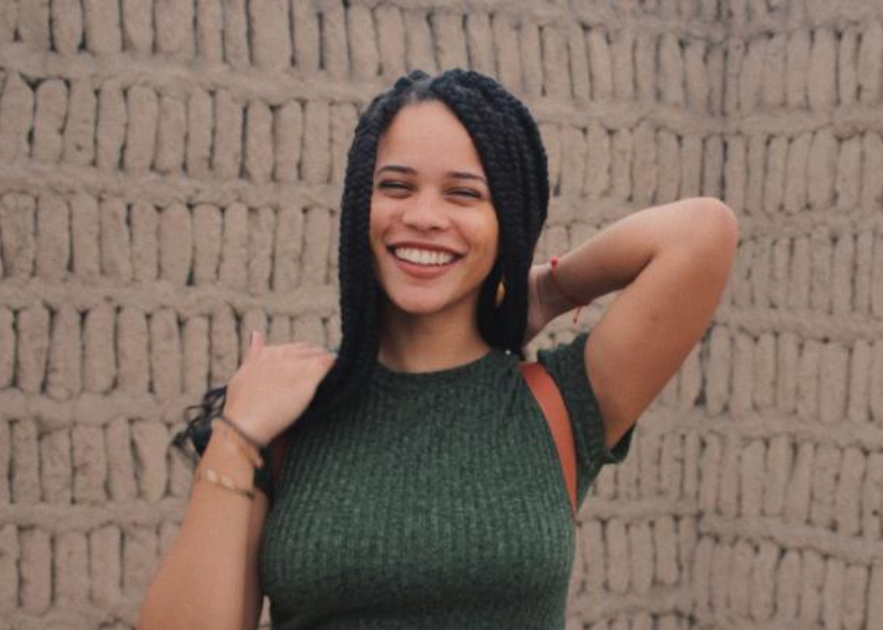A Conversation with Stapleton Award Recipient Bianca Uribe
Posted in Announcements Stapleton Students | Tagged Award, Fellowship, Stapleton, Student

Awarded annually in honor of anthropology student Scott M. Stapleton, the Stapleton Award provides majors and minors opportunities to conduct independent research, participate in internships, and develop anthropological experience outside the classroom. We recently sat down with 2017-18 recipient Bianca Uribe to discuss her research, her interest in anthropology, and her application of the award.
This interview was conducted on November 3, 2017 by Media and Outreach Assistant Katie Morgan. Responses have been lightly edited for clarity.
KM: So first just tell me a little about yourself!
BU: My name is Bianca Uribe, I’m a senior in the college—Anthro major, Portuguese minor—and I’m from New York City
KM: What first interested you in anthropology?
BU: I was fascinated by learning about different cultures and different people. My whole experience growing up in New York, of course in New York there’s all this different culture everywhere—on a block you can hear like fifteen different languages, and I was just attracted to that. All my friends were super multi-cultural, and we would do things like eating at a different restaurant from a different culture every month whenever we could. And beyond just interest in learning about other people, other places, I just like the format of learning in anthropology. I think that’s something I’ve learned in these four years that’s very particular to me. It definitely matters what field you’re studying in, but [what also matters is] the way you’re being taught and the care with which teachers teach, how they incorporate real world things. It feels like every anthropology professor I’ve had is really in tune with what’s going on in the world, with social justice. I don’t know, I just like the field, everything about it!
KM: How do you think studying anthropology can help your career goals in the future?
BU: Um (laughs) that’s a great question, considering I’ll be launched into the real world soon. I think anthropology helps a lot in that I feel like the way that we think in anthropology is very different than in other fields. I feel like we take a very interdisciplinary outlook on the world, and I feel like that’s something you can apply to everything else. So no matter what job I get, I feel like I’ll still have this holistic background and this knowledge of how other things work. The way that we question things in anthropology is pretty universal—that can be applied to anything, always questioning your motives, your intentions, where you stand, where other people stand.
KM: How did you find out about the Stapleton Award?
BU: I found out through Professor Onder. I was interested in doing my own independent research project; this summer I was in Peru, and I applied for a fellowship in order to do that project there, but I kind of didn’t want my work to just be limited to being abroad. I wanted to know how I could apply that to my life here. Professor Onder told me that it was available and open, and I didn’t think I would get it (laughs), but I applied anyway because she asked me to, and it’s been great!
KM: Tell me a little bit about how you’re applying the Stapleton Award.
BU: Basically it’s for the writing of my thesis. My Stapleton Award is to help me construct a comparative analysis between my work in Peru and something more domestic. My project is about the curation of informal systems of healthcare and healing for communities, particularly in Peru it was the Afro-Peruvian population, but here with the Stapleton I’m working with more Afro-Latino and migrant communities and how they kind of keep traditional systems of healing in a canvas of new experiences.
KM: And then my last question, why, to you, is it important for people to study anthropology?
BU: This might be a generalization, but I feel like the way people experience the world is very limited to their surroundings. And anthropology really opens the doors to a lot of different people and customs. I’m not really speaking about tolerance or anything; I’m more speaking about becoming aware of other people and how they’re not very much unlike you. What I’m really getting at is, through anthropology, you’re studying culture, and sometimes that can be critiqued as you’re exploiting a culture or “othering” it, but really it’s also a study of you. You come to see yourself in that space and realize that you also have culture. To other people, you’re probably a strange subject as well. I feel like anthropology really makes you aware of the world—not as something that’s different, but that’s an extension of the way you are.
Bianca Uribe is a senior in the Georgetown University College and a 2017-18 recipient of the Scott M. Stapleton Award. To learn more about the award, visit our Stapleton Award Page
